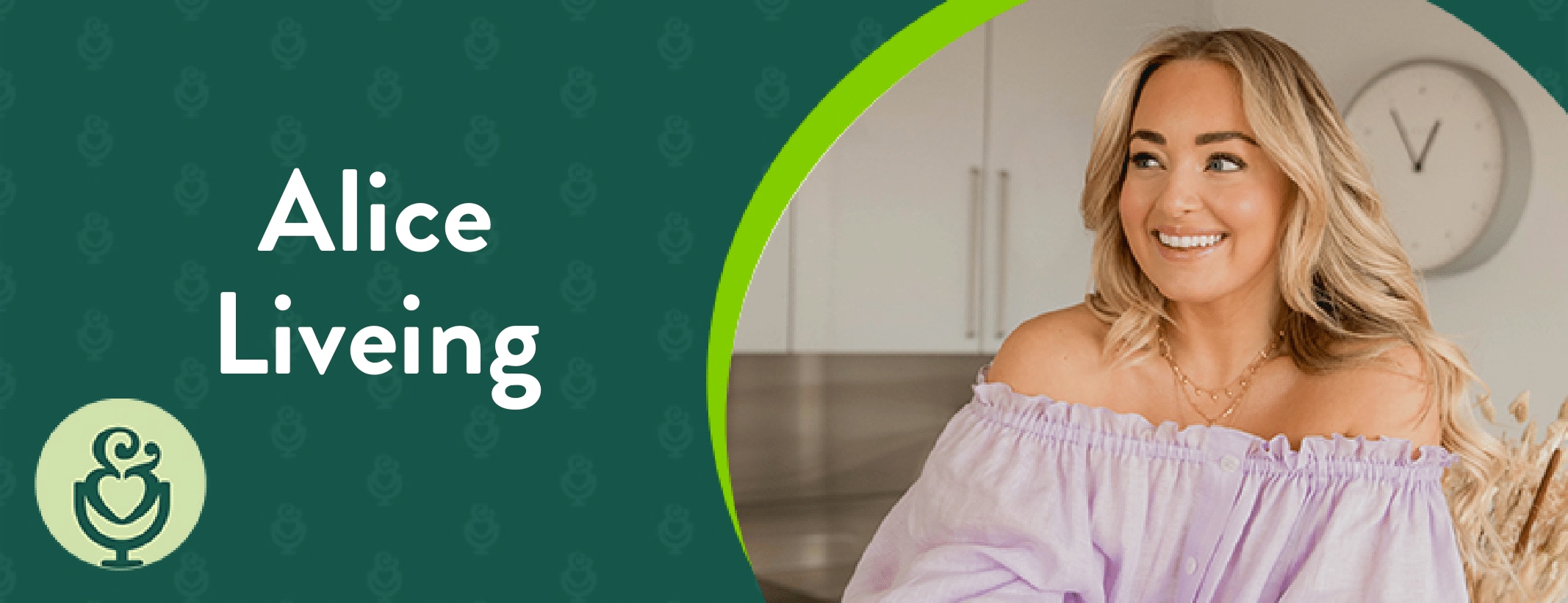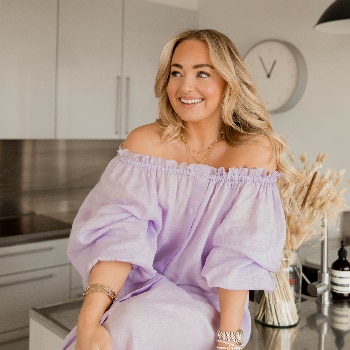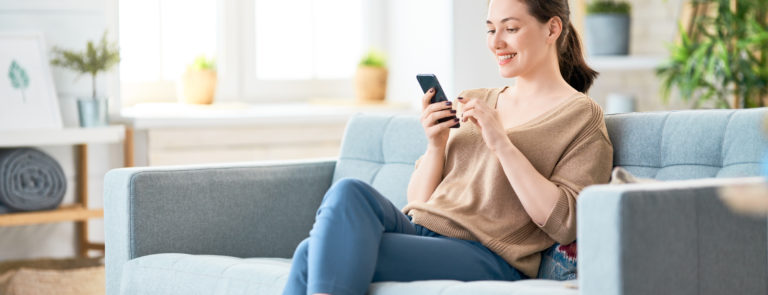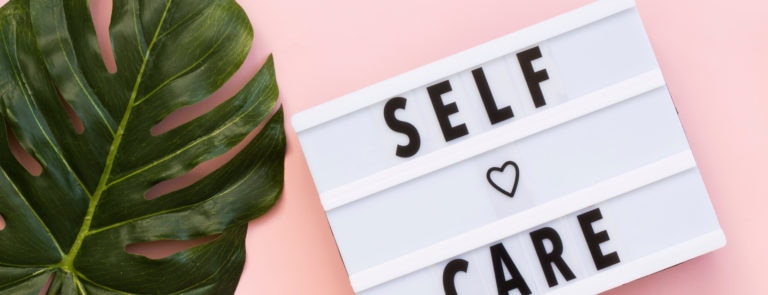S02 E08 | 53m | How to find your strength

What we're talking about in this episode
It's ok to show your vulnerabilities, we're not perfect and that's ok. In this fantastic final episode of series 2 we have Alive Liveing sharing her experience of health, fitness and social media. Her warm words of wisdom cover topics such as:
- Body image
- Self-doubt
- Finding strength
With guest:
- Alice Liveing - a personal trainer, best selling author, podcast host and influencer. Having gone through her own journey with her mental and physical health, Alice has amassed a following of over 700k across all platforms and released three books; The Body Bible, Eat Well Every Day and Everyday Fitness.
How to find your strength
How to find your strength
PT, mega-influencer and best-selling writer Alice Liveing talks body image, the importance of honesty and working with domestic abuse charity Women’s Aid – as well as her new app, Give Me Strength
'I originally wanted to be a dancer in West End musicals’
‘I went to a performing arts college, and spent every day in a ballet leotard. From day one, it was drilled in that appearance was crucial to success: the right make-up, hair, outfit. Then a teacher said one day: “Alice, you need to build some strength.” It was like a red rag to a bull. I thought, I know I’m not the best performer, but I can be the strongest. I signed up to the gym and started strength training. Up to that point, I’d never really enjoyed exercise, but something just clicked.’
‘It’s important to show your vulnerabilities’
‘Having a large following online means people can put you on a pedestal. I’ve learned how important it is showing your vulnerabilities and telling people I’m not perfect, I make mistakes and have my insecurities as much as the next person. Being honest allows me to connect with my audience on a deeper level.’
‘We’re made to believe life is better if we’re smaller’
‘When you reach your goals and people say you look amazing, it can become addictive seeking that external validation. I existed off that unhealthily for a couple of years. It’s about unpicking behaviours we’re conditioned to believe are true, like more exercise is always better or we should always be in a calorie deficit. The body we want to exist in and the body we need to be healthy can be two different things. We need to understand while exercise and eating well is great for us, there’s a tipping point, and it’s different for everyone.’
‘Exercise isn’t always the answer’
‘I see quotes flying around saying exercise is free therapy but I don’t necessarily subscribe to that narrative. It shouldn’t be the only thing we use for our mental health or something we’re reliant on. If I’m feeling anxious or blue, a good gym session can be the thing that makes me feel better. But sometimes it isn’t, so what are the other things I can rely on? For me, things like doing five minutes of really focused breathing and regular talking therapy have also been really helpful. I encourage people to see exercise as just one element in a toolbox of things supporting your mental wellbeing.’
‘My experience of an abusive relationship changed me’
‘Your sense of self, confidence and identity are wiped from you. I came out of my situation having to rebuild myself from the ground up. I was only 16, and just wanted to believe it was a bad experience, write it off and move on. Now I’ve spoken to so many women in similar situations. We don’t want to sometimes think what’s happened to us is abuse. My role within Women’s Aid has been to raise awareness of what constitutes a healthy relationship for young people and any red flags should they appear. That for me is super-important.’
‘I wanted my app, Give Me Strength, to be accessible for beginners’
‘So many formats are intimidating to women. My Movement Prep programme is designed for someone who just needs to know where to start. It takes you through basic movement patterns: squats, lunges, how to gain stability and strength. My Energise programme is designed with menopausal women in mind, mixing up strength training with mobility. I wanted to open up to audiences who might not be confident enough to go the gym and use weights, or have time pressures because they have kids or are a carer. I try to cover every angle of who can engage with exercise.’
‘How I fit wellness into my day’
‘I’m a big fan of mindfulness apps. Things like Headspace and Calm are great tools to just take 5 minutes to check in with ourselves. And if all of us can walk a bit more outside, we’ll feel better for it – whether that’s having a step goal or just a half-an-hour walk each lunchbreak. Walking is low-impact, free and it’s good for your mind and body.’
Want to learn more? Listen to more episodes The Wellness Edit podcast here.







